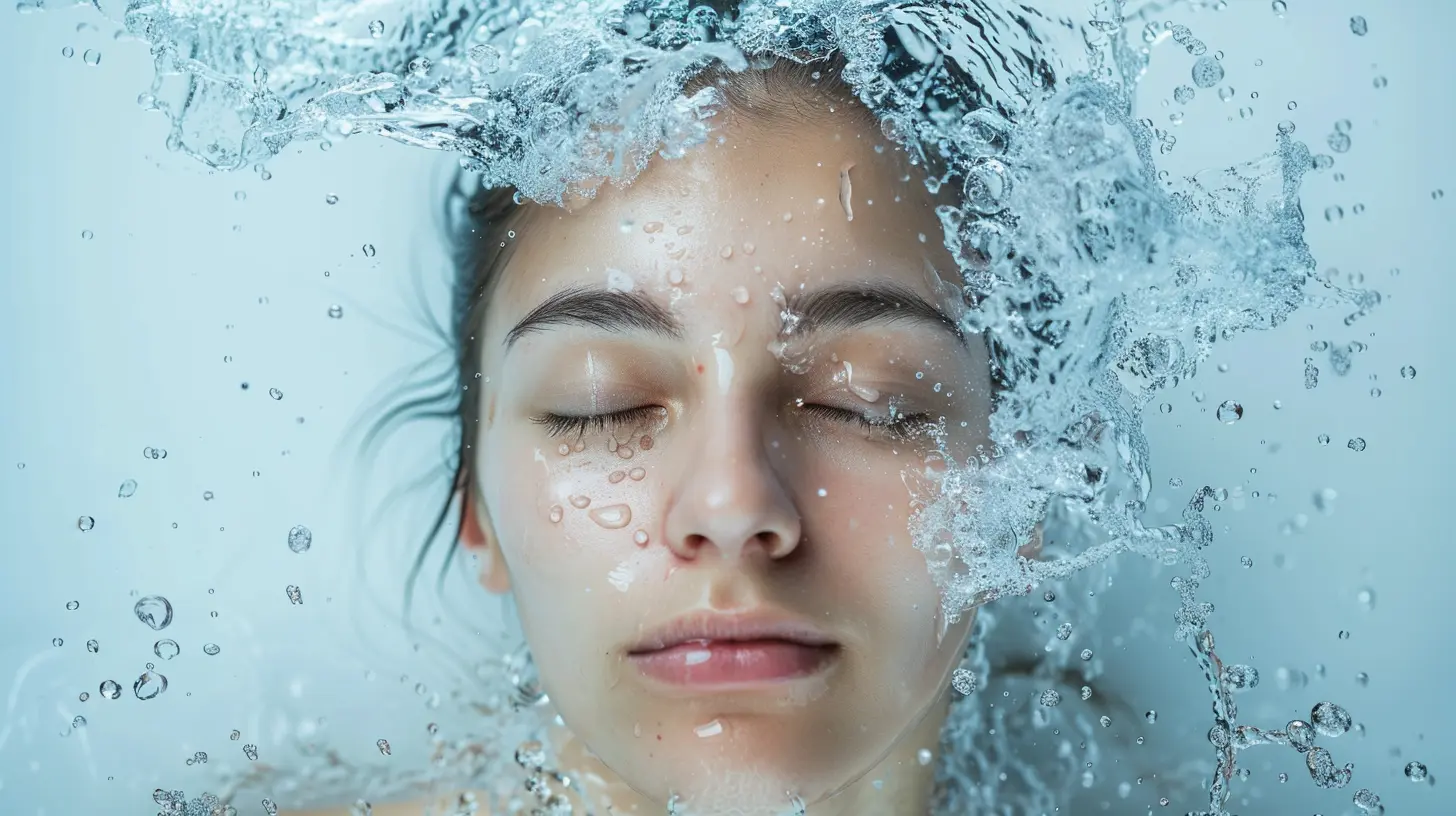How Proper Hydration Can Influence Your Stress Levels
31 December 2024
Let’s face it – stress has become such a frequent guest in our lives that it might as well pay rent. Whether it’s that never-ending to-do list or the curveballs life throws at you, stress creeps in when you least expect it. But what if I told you that something as simple as staying hydrated could play a significant role in keeping your stress levels in check? Sounds too good to be true, right? Stick with me because we're about to dive deep (pun intended) into how proper hydration can influence your stress levels and why your water bottle may just become your new best friend.
The Magic of Water: Why Hydration Matters
Water is essentially the MVP of just about everything in our bodies. From regulating body temperature to aiding digestion and keeping our skin glowing, it’s like the Swiss Army knife of human health. But did you know that staying hydrated also has a powerful connection to how you feel mentally and emotionally?Picture your body as a car engine. If there’s not enough oil in the tank, the system starts to sputter. Similarly, when your body is low on water, your brain doesn’t operate as efficiently, and that can lead to all kinds of problems, including heightened stress. Yup, dehydration doesn’t just make you feel tired and cranky; it can actually amplify your stress levels without you even realizing it.
The Science Behind Hydration and Stress
Let’s break it down. Stress triggers the release of a pesky hormone called cortisol, aka the “stress hormone.” While cortisol is essential in small doses (it helps you respond to emergencies), too much of it for too long can wreak havoc on your mental and physical health.Here’s where hydration comes in: when you’re dehydrated, your body perceives it as a form of stress. This means your cortisol levels can spike even higher, adding fuel to the fire. In other words, dehydration doesn’t just make you feel lousy physically; it can also make you feel more on edge, irritable, and overwhelmed. It’s like trying to put out a fire but accidentally throwing gasoline on it instead.
The Brain-Water Connection
Did you know your brain is about 75% water? Yup, it’s practically a sponge! That’s why brain function takes a hit when you’re dehydrated. Think about those moments when you feel foggy-headed or have trouble concentrating – chances are, you’re running on empty when it comes to H2O.Dehydration can also mess with your neurotransmitters, the little messengers in your brain that regulate mood and emotions. Without enough water, these chemical signals can go haywire, worsening feelings of anxiety and stress. It’s no wonder hydration is often referred to as "fuel" for the brain!
Signs You Might Be Dehydrated (and Not Even Know It)
Here’s the kicker: most of us walk around mildly dehydrated every day and don’t even realize it. Wild, right? Dehydration is sneaky like that. Here are some telltale signs you might need to up your water game:- Feeling overly tired or sluggish
- Experiencing headaches or dizziness
- Noticing dry skin or chapped lips
- Dark yellow urine (yes, it’s worth a peek!)
- Getting cranky or irritable for no apparent reason
And here’s one that might surprise you: feeling thirsty. Yep, by the time your body tells you it’s thirsty, you’re already dehydrated. Think of thirst as your body’s emergency alarm system.
How Hydration Lowers Stress Levels
Alright, we know dehydration can make stress worse, but here’s the good news: staying hydrated can actually help reduce stress. Let’s take a look at how.1. Balances Cortisol Levels
Proper hydration can help keep cortisol levels in check. Think of water as a natural stress-relief elixir. When your brain and body have enough water, they’re better equipped to handle the challenges life throws at you.2. Improves Mood
Ever notice how you just feel “off” when you’re dehydrated? Studies show that even mild dehydration can negatively impact mood. By drinking enough water, you’re giving your brain the hydration it needs to stay balanced and keep those positive vibes flowing.3. Boosts Energy
Stress and fatigue often go hand-in-hand. The good news? Staying hydrated can help prevent that mid-afternoon crash and give your energy levels a much-needed boost. It’s like recharging your mental batteries!4. Enhances Cognitive Function
Hydration isn’t just good for your body; it’s a game-changer for your mind. When you’re properly hydrated, you’re more focused, productive, and less likely to feel overwhelmed by stressors.Tips to Stay Properly Hydrated
So, now that we’ve got hydration on a pedestal, how do we make sure we’re getting enough of it? Here are some easy ways to stay topped up on water:1. Sip Throughout the Day
Instead of chugging a ton of water in one go, aim to sip consistently throughout the day. Keep a water bottle nearby as a reminder.2. Eat Your Water
Did you know you can hydrate through food? Fruits and veggies like watermelon, cucumber, and oranges are loaded with water and make a tasty addition to your diet.3. Set Reminders
If you’re the forgetful type (no judgment – we’ve all been there), set reminders on your phone or use a hydration app to track your intake.4. Spice It Up
Not a fan of plain water? Add a splash of lemon, cucumber slices, or even a few mint leaves to make it more exciting. Trust me, it’s like turning your water into a spa day for your taste buds.5. Listen to Your Body
Pay attention to your body’s thirst cues, but don’t rely on thirst alone. Remember, by the time you’re thirsty, you’re already dehydrated. Stay ahead of the game.Can You Overdo It?
Okay, so now you’re sold on the idea of hydration. But can you go overboard? The short answer is yes – drinking excessive amounts of water can lead to a condition called hyponatremia, where the balance of electrolytes in your body gets out of whack. However, this is super rare and mostly occurs in extreme situations (like endurance sports). For the average person, around 8-10 cups a day (or roughly 2 liters) is a great starting point. Adjust based on factors like your activity level, climate, and individual needs.Hydration: A Simple Yet Powerful Stress-Relief Tool
Drinking enough water might not magically erase all your problems, but it’s a small, simple habit that can make a big difference in how you handle stress. Think of it as the foundation for a healthy body and mind – everything else builds on top of it.So, the next time you feel overwhelmed, take a deep breath, grab a glass of water, and give yourself a little hydration boost. Sometimes, it really is the simplest solutions that pack the biggest punch.
Final Thoughts
It’s easy to overlook something as basic as water when we’re juggling a million and one things in life. But staying hydrated isn’t just about quenching thirst; it’s about supporting your body in every possible way – mentally, emotionally, and physically. So, cheers to making water a priority and giving your stress levels the boot. Your future self will thank you!all images in this post were generated using AI tools
Category:
Stress ManagementAuthor:

Arthur McKeever
Discussion
rate this article
10 comments
Arlo McCaffrey
Who knew staying hydrated could help with stress? I guess my coffee addiction needs a makeover—hello, water, my new best friend!
February 18, 2025 at 5:46 PM

Arthur McKeever
Absolutely! Staying hydrated is key to managing stress. Water can be a great ally in feeling your best. Cheers to your new friendship with hydration!
Lark Bell
Staying properly hydrated is essential for managing stress effectively. Dehydration can lead to increased cortisol levels, exacerbating anxiety. Aim for at least eight 8-ounce glasses of water daily, and consider herbal teas or hydration-rich foods. Remember, staying hydrated is a simple yet powerful tool for stress management.
February 1, 2025 at 4:47 AM

Arthur McKeever
Absolutely! Staying hydrated plays a crucial role in stress management by helping regulate cortisol levels and supporting overall mental well-being.
Rex Hines
Great insights on hydration’s impact!
January 20, 2025 at 3:29 PM

Arthur McKeever
Thank you! I'm glad you found the insights helpful!
Vireo Shaffer
Water: the silent stabilizer.
January 13, 2025 at 5:03 AM

Arthur McKeever
Absolutely! Hydration plays a crucial role in maintaining balance and reducing stress. It's often overlooked but essential for overall well-being.
Oriana Mendez
Great insights! It's fascinating how hydration impacts not just physical health but mental well-being too. I’m curious to learn more about the connection between water and stress relief!
January 7, 2025 at 5:44 AM

Arthur McKeever
Thank you for your interest! Staying well-hydrated can indeed help reduce stress by improving mood and cognitive function. I encourage you to explore more on how water affects neurotransmitters and overall mental clarity!
Tabitha Fletcher
Great article! It’s fascinating how hydration plays a crucial role in managing stress levels. Staying properly hydrated can be a simple yet effective way to enhance our overall well-being. Let’s remember to drink enough water throughout the day; our minds and bodies will thank us! Keep spreading this valuable information!
January 6, 2025 at 4:58 AM

Arthur McKeever
Thank you for your thoughtful comment! I'm glad you found the article valuable. Staying hydrated truly is a key aspect of overall well-being. Cheers to prioritizing hydration!
Lucas Evans
Great insights on hydration and stress management!
January 4, 2025 at 3:29 AM

Arthur McKeever
Thank you! I'm glad you found the insights helpful!
Caitlin Rogers
Great article! It's amazing how something as simple as staying hydrated can have such a profound impact on our stress levels. Remember, small changes in daily habits can lead to significant improvements in overall well-being!
January 3, 2025 at 4:07 PM

Arthur McKeever
Thank you! I'm glad you found it insightful. Indeed, small changes like hydration can make a big difference in our well-being.
Tia McCullough
Staying hydrated isn’t just about quenching thirst; it’s a vital tool in your stress management arsenal. When dehydration strikes, stress hormones can surge. So, next time you feel overwhelmed, reach for a glass of water—your body and mind will thank you for this simple yet powerful reset.
January 1, 2025 at 3:18 PM

Arthur McKeever
Absolutely! Staying hydrated is crucial for managing stress and maintaining overall well-being. A simple glass of water can make a significant difference in how we cope with stress. Thank you for highlighting this important connection!
Zarev Sharpe
Could hydration really be the stress key?
December 31, 2024 at 5:04 PM

Arthur McKeever
Yes, proper hydration plays a crucial role in regulating stress levels, as dehydration can negatively impact mood and cognitive function.
MORE POSTS

The Top Foods Rich in Heart-Healthy Minerals

How the Paleo Diet Can Help Improve Mental Clarity

Protein-Packed Vegetarian Meals That Satisfy

How to Use Superfoods for an Effective Detox

Ways to Strengthen Your Child's Respiratory Health

Detoxification and the Importance of Minerals

How to Detox Your Skin for a Natural Glow